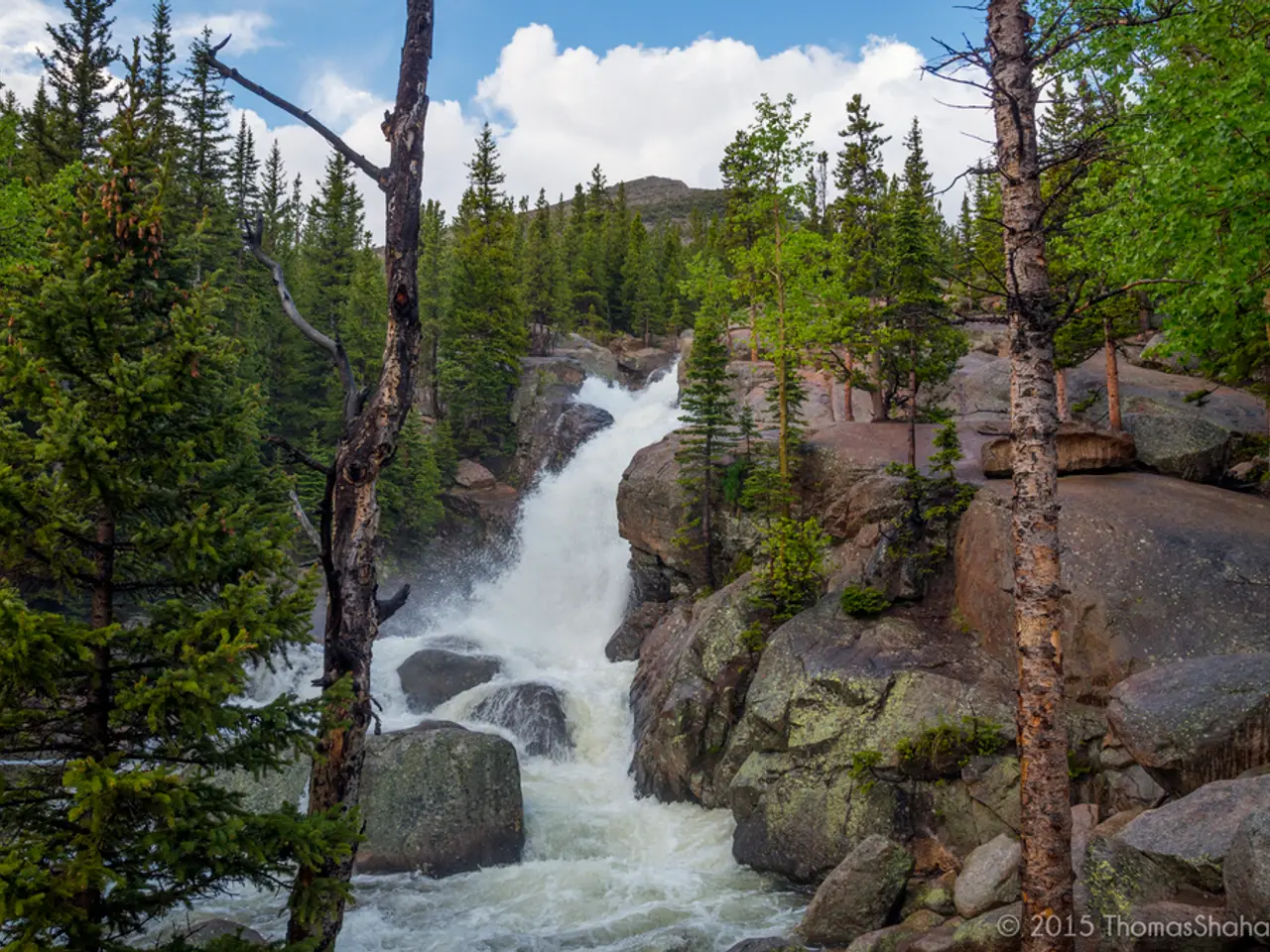Climber perishes in Karakoram mountains due to rockslide incident
The Karakoram Mountains, home to the second-highest mountain on Earth, K2, have recently seen a surge in rockfall incidents. This tragic trend was underscored by the death of Chinese climber Guan Jing, who lost his life due to a rockfall while descending from the summit of K2 in the Pakistani Karakorum Mountains [1].
Guan Jing's death follows the loss of four other lives in the region this year, and it comes just a few weeks after the death of former world-class biathlete Laura Dahlmeier, who died during a climbing tour at the end of July due to rockfall on Laila Peak in northern Pakistan [2].
Mountaineering legend Reinhold Messner attributes this increase in rockfall to climate change. He explains that global warming is causing rock mountains down to 2,000 meters to become looser and more brittle, leading to stones falling off [3].
The melting of ice and snow in the Karakoram, due to unusually high temperatures and significantly reduced snow and ice cover, is the primary cause of this destabilization. This shift in conditions has made peaks more prone to rockfalls and avalanches [4].
Reports from the 2025 climbing season in the Karakoram support these claims. Glaciers are visibly receding, and the lack of snow cover is making peaks more unstable. Climbers have noted that terrain that was once covered by ice year-round is now exposed as "teetering piles of loose rock," with rockfalls occurring as frequently as every 15 minutes, day and night [5].
Dry winters followed by unusually hot summers are driving these changes, making the Karakoram a more dangerous place for mountaineers than it was in past decades. The warmer temperatures and decreased snow cover not only increase rockfall hazard but also reduce the stability of climbing routes [6].
Helicopters have retrieved Guan Jing's body from K2, and the mountaineering community hopes that these tragic incidents will serve as a wake-up call for the need to address the effects of climate change on mountaineering safety.
References: 1. The Guardian 2. BBC News 3. National Geographic 4. Al Jazeera 5. New York Times 6. The Conversation
- The mountaineering community is advocating for a review of the community policy regarding safety measures in response to the increased risk of rockfalls in the Karakoram Mountains.
- Scientists suggest that environmental-science research focuses on the impact of climate-change on mountainous regions to develop appropriate employment policies for mountain climbers and guide members.
- General-news outlets have been reporting on the connection between climate-change and the frequency of accidents in the climbing season in the Karakoram Mountains, emphasizing the role of environmental-science in addressing this dangerous trend.







